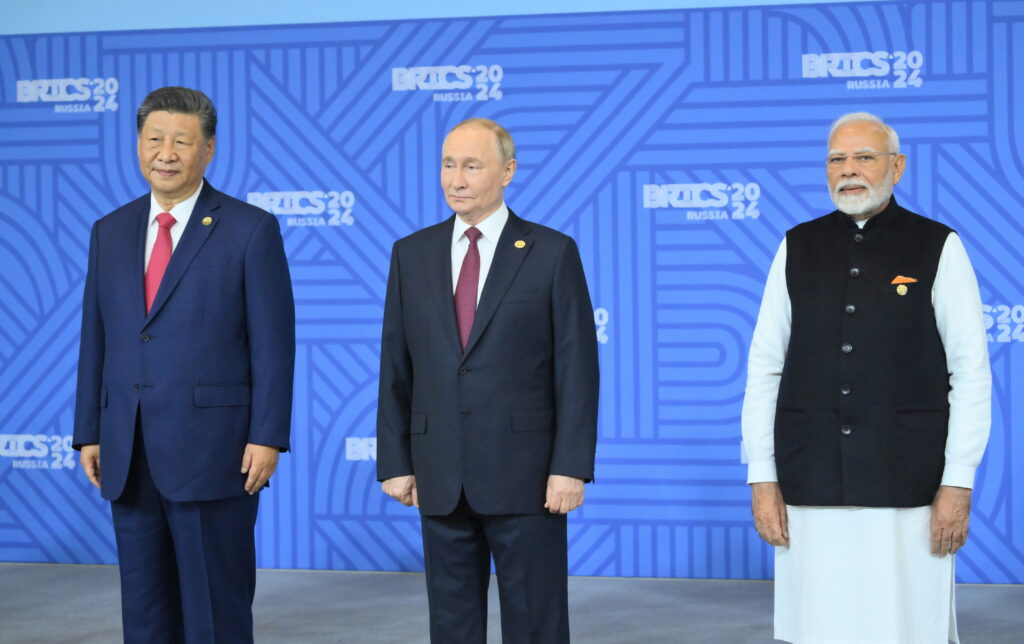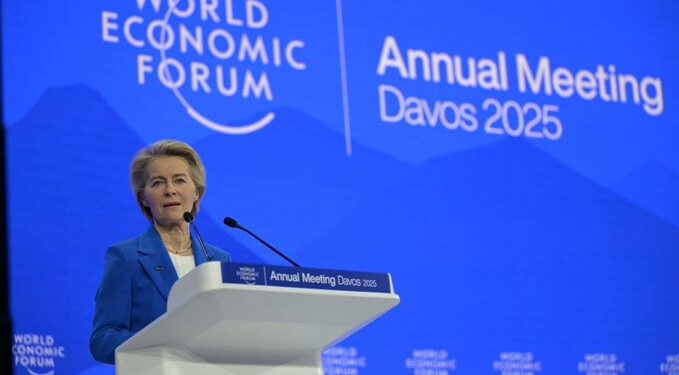Brussels – A blow to the circle, a blow to the barrel; continuity and discontinuity; one eye to the West, to partners once unquestioned but suddenly less reliable, and one eye to the East, to potential new partners. Ursula von der Leyen is looking for alternatives to Donald Trump’s America, and the president of the European Commission is now thinking of China and India. It is a necessary move for the EU, which lacks finances and raw materials and is grappling with all-new growth needs and, therefore, less predictable. The choice, however, risks antagonizing the United States.
“The first trip of my new Commission will be to India,” von der Leyen said at the World Economic Forum in Davos. “We want to strengthen the strategic partnership with the country,” she admitted. “I believe we should also strive for mutual benefits in our conversation with China,” she added. They are messages with strong political content directed at a Trump, whom von der Leyen almost challenges when she outlines the direction she intends to take.
 “Our message to the world is simple: if there are mutual benefits in sight, we are ready to engage with you,” is her premise. “If you want to upgrade your clean-tech industries, if you want to upscale your digital infrastructure – Europe is open for business.” She presents rather than imposes her agenda because the reality of the situation will matter more than anything else. Von der Leyen seems intent on closing the door on Trump’s America, which looks to drilling and traditional fossil fuels, rejecting the EU’s green and digital approach.
“Our message to the world is simple: if there are mutual benefits in sight, we are ready to engage with you,” is her premise. “If you want to upgrade your clean-tech industries, if you want to upscale your digital infrastructure – Europe is open for business.” She presents rather than imposes her agenda because the reality of the situation will matter more than anything else. Von der Leyen seems intent on closing the door on Trump’s America, which looks to drilling and traditional fossil fuels, rejecting the EU’s green and digital approach.
The European Union tries to play the role of the United States, to set conditions, acting as the power it is not. Von der Leyen comes across as ‘cocky’. “If there are mutual benefits in sight, we are ready to engage with you” reflects the same approach as the US, and Trump has been crystal clear. It is the EU that needs the US, not vice versa. The president of the European Commission tries to flex her muscles, trying to mask the weaknesses of a fragile Europe. However, she cannot deny that the EU lacks the economic strength of the United States, nor does it have a subsoil rich in energy and raw materials as other players. So, it can only seek its fortune elsewhere.
To defend its values in a changing world, the Union “must change the way we act. We must look for new opportunities wherever they arise,” von der Leyen cuts short, even if that means moving Europe eastward. “This is the moment to engage beyond blocs and taboos,” she added. The only card the EU can try to play is that of accountability. “With Europe, what you see is what you get,” the EU Commission president stressed. “We play by the rules. Our deals have no hidden strings attached.” The assertiveness of the US, with the sincerity of the EU. Von der Leyen sells herself this way to the rest of the world.

After all, and to her credit, von der Leyen has been able to sell it so far. She has closed the trade agreement with Mercosur and updated the free trade agreement with Mexico. Now, everything is in the hands of national governments; it will be up to them to decide whether these agreements will be ratified or sunk under the threat of votes in national parliaments. The EU is moving, however, in a bid not to be crushed by other, certainly more influential, players. It sends a message to them, accompanied by an announcement: “Next week, it will present its roadmap” for competitiveness, a document that “will guide us for the next five years.”
It remains to be seen how Europeans will perceive the image of the EU, given the constant reminder of the EU’s focus on its values. Von der Leyen does it again: “Our values do not change.” It is not entirely true. Wanting to do business with India and China means pretending that these countries do not have interests and ties with Vladimir Putin’s Russia, which Europe demonizes.
English version by the Translation Service of Withub





